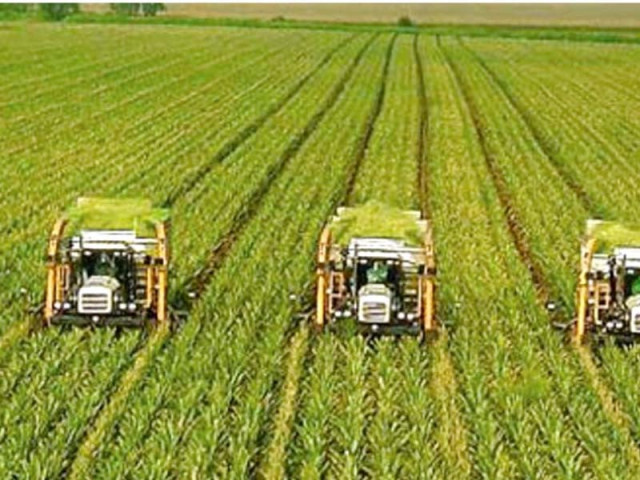Sindh farmers urge promotion of intercropping
To boost agro-ecosystem, ensure food security in Sindh amid water shortage

Progressive growers and agriculture experts are advocating for promoting intercropping, one of the traditional farming systems, to boost the agro-ecosystem and ensure food security in Sindh, where there is a significant water shortage.
Intercropping, cultivating two or more crops simultaneously in the same field, is a traditional farming system that has been in use for a long time. However, it is not yet widely popular due to some vested interests of Zamidars (landlords).
This farming practice can help promote the agro-economy, ensure and enhance food security, particularly in the left-bank canal areas of the Sukkur Barrage, which cover full-fledged eight districts of Sindh. These eight districts, including Sukkur, Khairpur, Naushahro Feroze, Shaheed Benazirabad, Sanghar, Matiari, Tando Allahyar, and Mirpurkhas, possess highly fertile agricultural lands.
Speaking to The Express Tribune, Sindh Chamber of Agriculture (SCA) Senior Vice President and progressive grower Nabi Bux Sathio said that intercropping is a beneficial cultivation practice that can help conserve water, reduce the cost of fertiliser, land preparation, and labour as farmers grow two or three crops simultaneously while using resources for one crop only.
Under this method, a farmer applies fertiliser, water, carries out land preparation, and uses labour for one crop, while another one or two crops do not require water, fertiliser, and other resources. He further stated that this farming system is suitable for the entire command areas of the left-bank canals of the Guddu Barrage, where the lands are fertile. However, growers have not been practicing this system lately, focusing mainly on high delta crops where intercropping cannot be applied due to vested interests.
Experts and academicians from Sindh Agriculture University (SAU) mentioned that both SAU and the Food and Agriculture Organisation (FAO) have initiated a project titled “Transforming Indus Basin with Climate-Resilient Agriculture and Water Management.” This project aims to provide training to small growers on intercropping to enhance economic prosperity in rural areas.
“We are promoting intercropping of sugarcane and wheat in the first phase and will apply this growing method to cotton and rice in the second phase,” said SAU Department of Soil Sciences Professor Dr Ghulam Murtaza Jamro. “We have identified 22 farmers’ demonstration plots or sites in three districts of the province, including nine in Badin, nine in Sanghar, and four in Umerkot. We have trained a total of 660 farmers who are direct beneficiaries on these 22 sites, with 30 growers on each site.”
The FAO covers the cost of land preparation, seeds, fertiliser, and training expenses, while SAU provides expertise and training to farmers. Local farmers in these three districts have received seeds, fertiliser, and the cost of land preparation, with farmer field schools set up. As part of the project, one acre of land owned by farmers on 22 sites in three districts has been selected, with growers expecting output.
SAU Faculty of Crop Protection Department of Plant Pathology Professor M Mithal Jiskani mentioned that trained farmers reported better returns and increased satisfaction with this agricultural technique.
Published in The Express Tribune, March 29th, 2024.
Like Business on Facebook, follow @TribuneBiz on Twitter to stay informed and join in the conversation.



















COMMENTS
Comments are moderated and generally will be posted if they are on-topic and not abusive.
For more information, please see our Comments FAQ